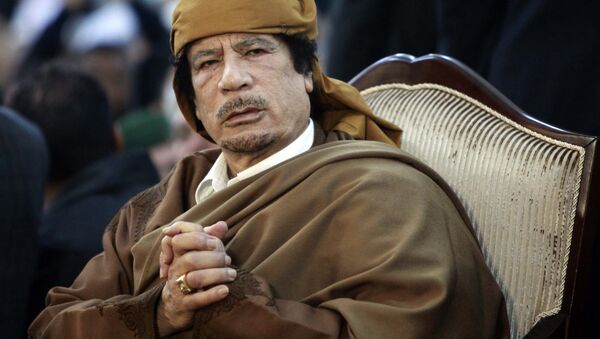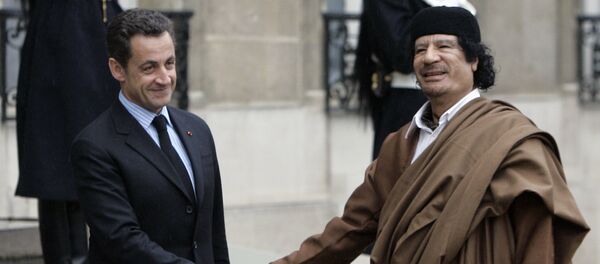Sputnik: From Britain’s perspective, specifically that of then-Prime Minister Tony Blair and head of MI6 Richard Dearlove, was Muammar Gaddafi a friend, an enemy or simply a temporary ally of convenience?
Mustafa Fetouri: I would say he was a temporary ally brought in by the circumstances. It is important to remember that in this regard, Libya had the best database, if you like, of all kinds of terrorism and terrorist organisations, including Al-Qaida in Pakistan and Afghanistan in its earlier days when Osama Bin Laden was actually supported by countries like the United States to fight the Soviet Union in Afghanistan. Only Libya, out of all countries in the world, issued an international arrest warrant for him, in the 1980s.
I would also think that what brought Tony Blair to Gaddafi – it wasn’t the other way around – was actually the West’s wish to settle the Lockerbie issue and try to open a new chapter with Libya. In this regard, again, they benefited a great deal in terms of information concerning terrorists and terror organisations and terror plots at the time, including what has been revealed lately in the newspapers.
Mustafa Fetouri: Well that’s the more important question. Actually, we have to remember something here: the fact that the Western countries, especially the United States, United Kingdom and France did not really like Gaddafi. They did not really like his regime, despite the rapprochements in 2004, and 2005 and so on. They always had a ‘plan b’ if you like. If the opportunity made itself available for them to get rid of the guy, and destroy him completely, it was to be taken immediately. They would not have missed such an opportunity. They already missed a couple of opportunities over the past forty years and the most serious of them was the Lockerbie case where they caught the regime, legally speaking, and they could have done something. However the international circumstances at the time did not provide the cover for such a move to destroy the regime. They tried of course, in 1984, and 1986 when the Americans raided his house and compound.
We really have to remember here that those governments – especially the US, UK and France – they don’t really care too much about their obligations and their given commitments to other governments, especially the ones that have a bad history with them, such as Libya under Gaddafi. I should add that Gaddafi himself never ever trusted them, but in the last ten years of the regime’s life he was not too much into the daily running affairs in the country, so he lost touch a bit, and that’s where the Western forces had their opportunity.
Mustafa Fetouri: Well I believe the UK government has already settled with one of Belhaj’s colleagues, Mr Sami Sadi. The circumstances are totally different today. Belhaj has been ‘rehabilitated,’ at least in Western eyes; he is now a respected politician – quote unquote – in Libya. He’s not the Tora Bora guy anymore; he’s not the terrorist guy anymore. However, his personality and his dealings remain to be in quite a dark area, and no one really understands what he is doing. I was surprised to see him invited to lecture in Paris about four years ago in 2012. This is a terrorist guy with a very long history behind him. If you are prepared to forget that, then you should be prepared to forgive and forget other similar activities, including what you have accused al-Gaddafi of doing, which turned out to be everything but true.
I think Belhaj he has a very good chance in this case, to get something out of the UK government, and he’s very likely to. Probably he will make an out of court settlements, despite the fact that the judicial process in his case is at the final stage I believe.
The views expressed in this article are solely those of the speaker and do not necessarily reflect the official position of Sputnik.





